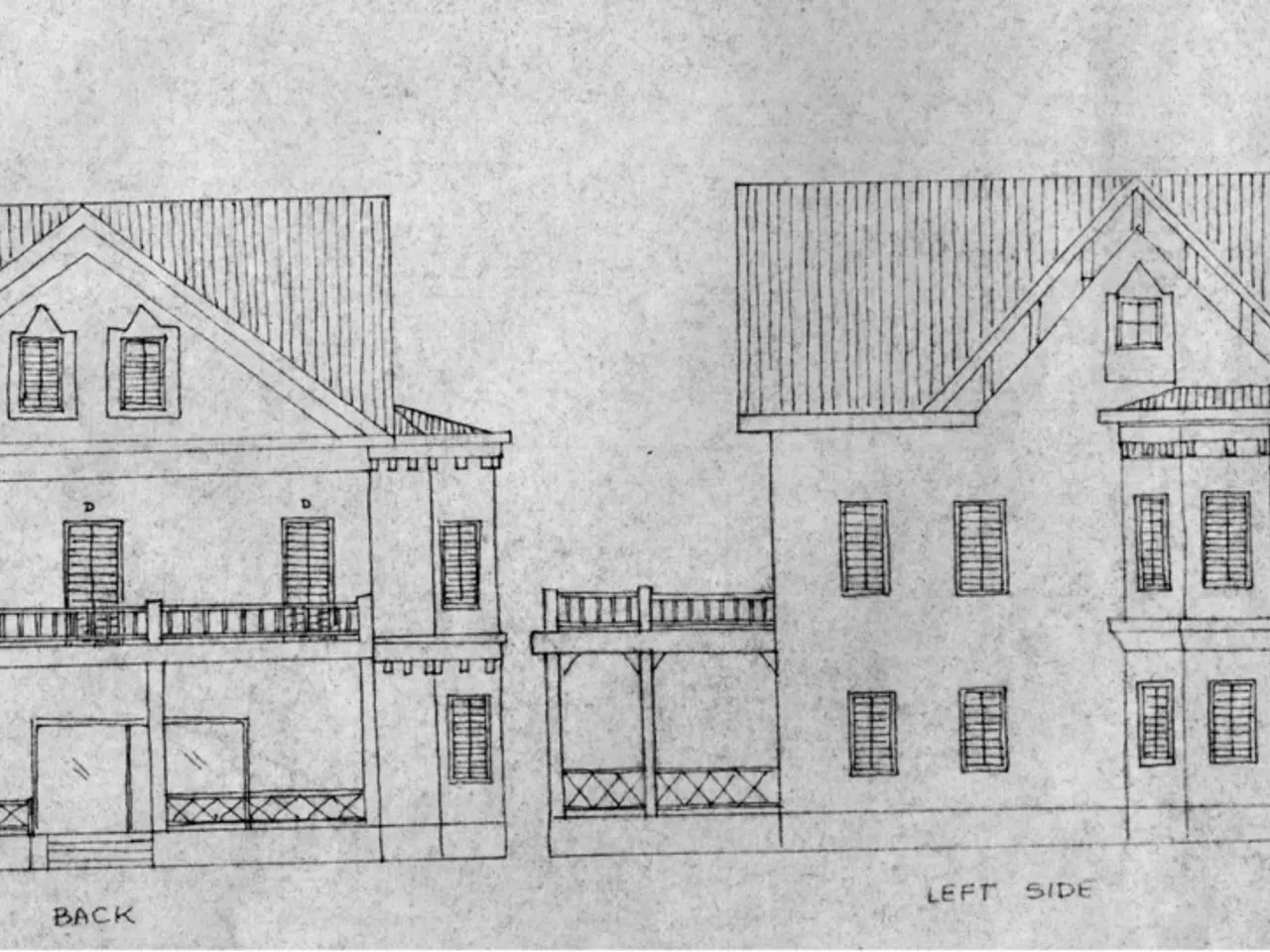Hiking real estate costs witnessed in Germany during the second quarter, with a significant increase of 4.1 percent recorded.
The third quarter of 2021 has seen a significant increase in real estate prices across Germany, with residential properties leading the trend. According to the Association of German Pfandbrief Banks (vdp), residential real estate prices increased by an average of 4.1% year-on-year and 1.1% quarter-on-quarter between April and June.
Jens Tolckmitt, the CEO of the vdp, attributes this increase to the tight housing market. "The recovery phase on the real estate market is continuing," said Tolckmitt, explaining that more potential buyers are interested in the few properties available on the market, driving prices even higher.
The increase in residential real estate prices marks the fifth consecutive quarter of price growth. However, the vdp has not yet specified the exact percentage increase for the fifth consecutive quarter.
The tight housing market is not just a residential issue. Commercial real estate prices, including office and retail properties, also saw an increase, albeit slightly lower at 2.9% year-on-year and 1.0% quarter-on-quarter.
The primary drivers of the residential real estate price increases are rising demand, limited new construction, and increasing investment in residential portfolios, especially outside the top seven cities. There has been a notable shift of investment focus towards metropolitan areas beyond the largest cities like Berlin, Munich, and Düsseldorf, along with increased portfolio sales which accounted for a growing share of transaction volumes.
New housing supply remains constrained due to high costs, financing barriers, labor shortages, and regulatory uncertainties. This supply shortage, particularly in cities like Berlin, contributes to upward price pressures on existing residential properties.
Existing housing rents in major German cities ("A-cities") have also increased by about 4% around this period, signalling robust rental demand that fuels property price growth. Stable financing conditions, with relatively stable interest rates, have also supported buyer confidence and market activity, even as building permits increased only modestly.
In conclusion, the third quarter of 2021 saw residential prices pushed up by a combination of continued strong demand, especially from investors seeking portfolio deals, combined with constraints on new construction supply and rising rents in urban centers. This dynamic led to moderate but steady price increases in the resale residential market across Germany, with notable local differences such as in Berlin where new construction struggled and resale prices increased.
[1] vdp (2021). Residential real estate market in Germany - Q2 2021. [Online] Available at: https://www.vdp.de/en/publikationen/vdp-residential-real-estate-market-in-germany-q2-2021/
[2] vdp (2021). Commercial real estate market in Germany - Q2 2021. [Online] Available at: https://www.vdp.de/en/publikationen/vdp-commercial-real-estate-market-in-germany-q2-2021/
- Given the robust rental demand and continuous price growth in residential properties, it might be beneficial for the community to implement policies that focus on vocational training for tradespeople, such as carpenters or plumbers, to boost new construction and alleviate the current housing market tightness.
- With the growing interest in real estate investment, particularly in residential portfolios, it could be a strategic move for investors to consider financing options for their ventures, possibly exploring different investment methods like crowdfunding or private equity, to ensure a strong financial standing in the competitive market.




